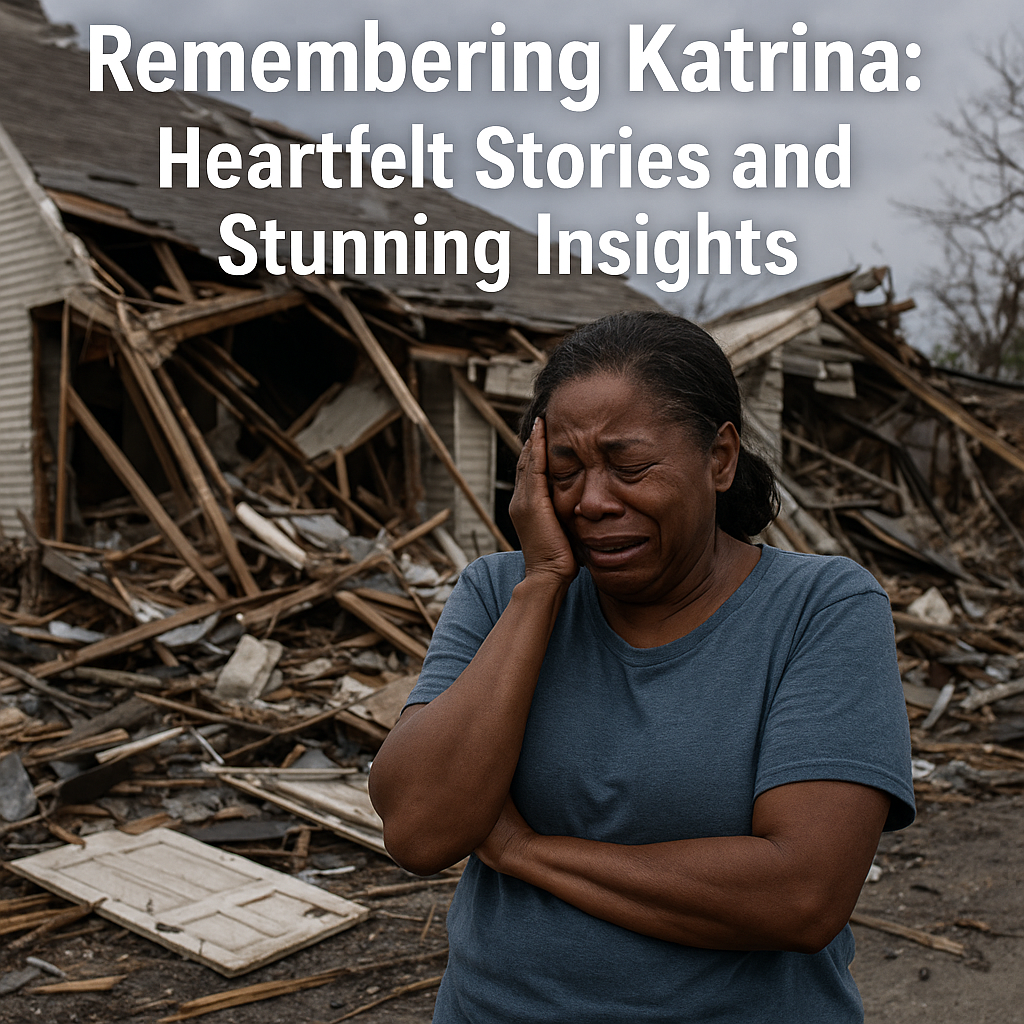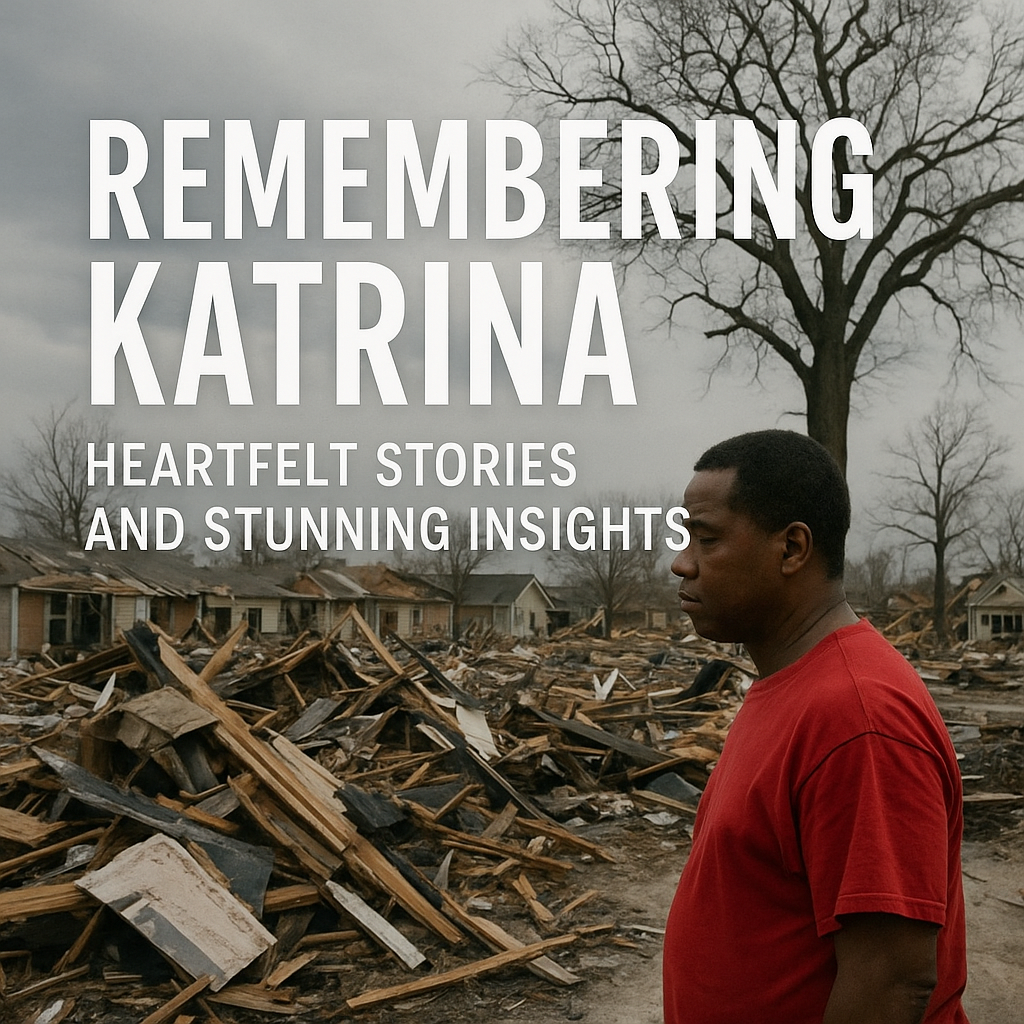Remembering Katrina: Heartfelt Stories and Stunning Insights
Remembering Katrina: Heartfelt Stories and Stunning Insights
Remembering Katrina brings forth a mixture of nostalgia, resilience, and heartbreak as we reflect on the 2005 hurricane that reshaped New Orleans and its surrounding areas. The storm, which devastated communities and disrupted lives, also gave rise to stories of survival, solidarity, and hope. Through vivid narratives and insightful analyses, we can better understand the persistent impact of Katrina on the Gulf Coast and beyond.
The Human Element: Resilience in the Face of Adversity

One of the most compelling aspects of this commemoration is the myriad of personal stories that illuminate the human experience during and after the disaster. Community members recount not just the horror of that fateful day when the levees broke but also the solidarity that emerged in its aftermath.
According to accounts featured in Atlanta Daily World, survivors speak of neighbors helping each other find shelter, share resources, and rebuild lives. These narratives are grounded in the shared reality that the physical and emotional scars of Katrina are interwoven with a powerful spirit of resilience. Many have not only endured but have actively engaged in rebuilding their communities. This sentiment resonates across various articles, as many locals relay how they came together to face the daunting challenges posed by the hurricane.
The Atlanta Voice highlights individual stories of residents who lost everything yet remained determined to rise from the ashes. As some reflect on their harrowing evacuations, they echo sentiments of gratitude for those who risked their lives to save others. Collectively, these stories reflect a remarkable human spirit, showcasing how tragedy can unify people irrespective of their differences.
Lessons Learned: Insights for the Future
While the personal tales are poignant, it’s crucial to acknowledge the broader lessons learned from Katrina that still resonate today. Over the years, experts and analysts have closely examined the disaster’s systemic failures, providing critical insights into emergency management and urban planning.
Articles from both Atlanta Daily World and The Atlanta Voice emphasize the need for proactive measures in disaster preparedness. The inadequate evacuation plans and the levee system’s vulnerabilities are lessons that New Orleans, along with other cities across the United States, cannot afford to ignore. Scholars point out that the real-time lessons gleaned from Katrina must translate into actionable policies that prioritize community resilience.
One pertinent insight from the aftermath of Hurricane Katrina is the importance of equitable urban planning and rebuilding initiatives. Many commentators argue that systemic disparities exacerbated the storm’s damage, impacting marginalized communities disproportionately. This informs current discussions surrounding climate change and disaster response, emphasizing the need for inclusive policies that prioritize vulnerable populations.
While many voices agree on the necessity for reform, there remains a debate on what optimal strategies entail. Some advocate for comprehensive community engagement in the planning process, while others highlight the need for forward-thinking technological solutions that bolster city infrastructure. This ongoing dialogue underscores the complexity of ensuring safety and resilience.
The Ongoing Impact of Katrina on Culture and Society
Katrina didn’t just reshape the geographic landscape; it also profoundly influenced the cultural fabric of New Orleans and its surrounding areas. The stories, art, and music emerging from this collective trauma reflect a society grappling with loss while simultaneously celebrating its enduring spirit.
Events commemorating Katrina engage artists and activists, emphasizing the importance of cultural representation in post-disaster recovery. Art has served not only as a healing mechanism but also as a powerful political tool, motivating community activism, and preserving the narratives of those affected.
Reports indicate that local events, such as art exhibitions and musical tributes, draw attention to ongoing recovery efforts while honors those who’ve been lost. The cultural footprints left by Katrina remain vivid, offering testimony that as much as the hurricane took away, it also inspired a renewed sense of identity and community.
Through these reflective occasions, residents remember loved ones, bring forth untold stories, and assert their right to exist in a city that has transformed through loss and resilience.
Looking Ahead: A Unified Call for Action
As we continue to commemorate the legacy of Katrina, it’s essential to not only remember the stories of survival but also engage in dialogues that promote proactive changes. The voices from Atlanta Daily World and The Atlanta Voice reinforce the idea that remembering Katrina offers an opportunity to examine our collective responsibility towards disaster preparedness, equity, and community resilience.
While some discussions highlight the successes of recovery and community spirit, they also serve as reminders of the ongoing challenges many still face. By combining heartfelt narratives with actionable insights, we can foster a future that takes all voices into account, ensuring that the lessons learned from Katrina help guide our path forward.
In conclusion, remembering Katrina is not merely a recollection of past events; it is a multifaceted journey through pain, resilience, and lessons that navigates the complexities of recovery. As we honor those lives forever altered by the hurricane, let us strive for a future that prioritizes readiness, resilience, and unity.















